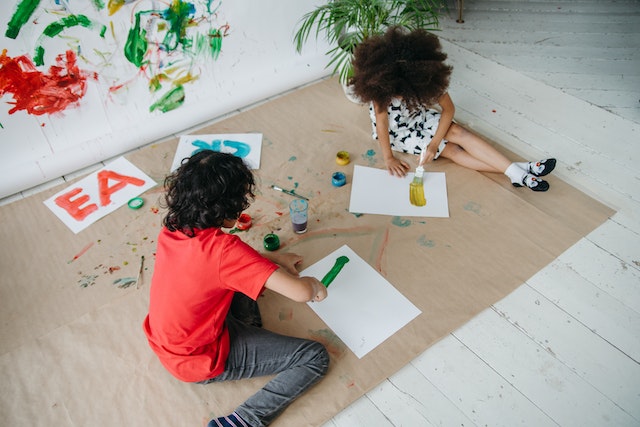
Fun and Educational Indoor Activities for Kids
October 25, 2023
Keeping kids engaged and learning while indoors can be a rewarding challenge for parents and caregivers. Fortunately, there are plenty of fun and educational activities that can stimulate a child’s imagination, encourage their creativity, and foster a love for learning—all from the comfort of your home. In this article, we’ll explore a range of indoor activities that are not only enjoyable but also enriching for kids.
1. Arts and Crafts
Arts and crafts are an excellent way to encourage creativity and fine motor skills. Provide children with a variety of materials such as colored paper, markers, crayons, glue, scissors, and crafting supplies like googly eyes, stickers, and fabric scraps. You can engage in projects like making greeting cards, creating paper mosaics, or crafting handmade jewelry.
2. Science Experiments
There’s a scientist in every child waiting to be unleashed. Conduct simple science experiments at home that are both educational and entertaining. Some ideas include creating a volcano with baking soda and vinegar, making a rainbow in a jar, or exploring the concept of density by layering liquids of different densities.
3. Cooking and Baking
Cooking and baking are not only valuable life skills but also a wonderful way to introduce math and science concepts. Choose simple recipes that children can participate in, like making cookies, decorating cupcakes, or creating their own mini pizzas. Along the way, they can learn about measurements, following instructions, and the science of chemical reactions in baking.
4. Reading and Storytelling
Reading is a fundamental skill, and fostering a love for books and stories is vital. Set aside time for reading, either as a family activity or individually. Encourage kids to choose books that interest them and let them explore a variety of genres. To make it more interactive, take turns reading or act out the story.
5. Puzzle Time
Puzzles, whether jigsaw puzzles or brain-teasing puzzles like crosswords and Sudoku, are excellent for cognitive development. They improve problem-solving skills, pattern recognition, and patience. Collaborate as a family to complete a challenging puzzle or let kids tackle puzzles suitable for their age.
6. Educational Games and Apps
There is a wide range of educational games and apps designed to make learning fun. Look for age-appropriate apps that cover various subjects, from math and science to language arts and history. Many of these apps offer interactive and engaging content that can help reinforce classroom learning.
7. Indoor Scavenger Hunt
Create an indoor scavenger hunt with a list of items or clues for kids to find around the house. This activity promotes observation skills, deductive reasoning, and teamwork. You can adapt the hunt based on your child’s age and interests.
8. Educational Videos and Documentaries
Educational videos and documentaries are a fantastic way to expand a child’s knowledge. Platforms like YouTube Kids offer a variety of channels that cater to different age groups and subjects. Select documentaries that explore topics like nature, history, and science to stimulate a child’s curiosity.
9. Gardening and Plant Care
If you have indoor plants or a garden, involve children in gardening and plant care. Teach them about different plants, their growth cycles, and how to nurture them. Gardening is an excellent way to introduce kids to biology, ecology, and the concept of responsibility.
10. Virtual Museum Tours
Many museums and cultural institutions around the world offer virtual tours and online exhibits. Take your child on a virtual museum tour to explore art, history, science, and culture from the comfort of your home. This can spark their interest in various subjects and inspire them to learn more.
11. Language Learning
If you’re raising a bilingual child or simply want to introduce a new language, use language-learning apps, flashcards, or online resources. Make it fun by playing language games, singing songs, and using everyday situations to reinforce language skills.
12. Family Science Night
Designate a night for family science experiments and demonstrations. Explore concepts like magnetism, light, and electricity through hands-on experiments. You can create a simple circuit with a battery and a light bulb or perform experiments with magnets and everyday objects.
